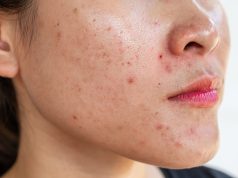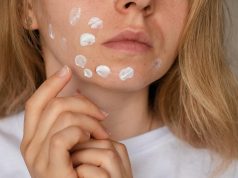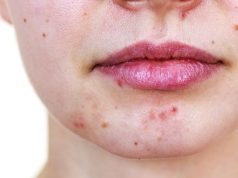May include spironolactone, flutamide, low-dose glucocorticoids, GnRH agonists
TUESDAY, Feb. 3, 2015 (HealthDay News) — Hormonal therapy is recommended for treatment of acne in patients who do not respond to standard therapies, according to a review published online Jan. 27 in the British Journal of Dermatology.
Noting that increased sensitivity of the pilosebaceous unit to androgens is one of the most important pathogenetic factors in acne vulgaris, Vincenzo Bettoli, M.D., from the University of Ferrara in Italy, and colleagues discuss hormonal treatment of acne.
The researchers note that hormonal treatment is indicated in second-line acne treatment. It is indicated in cases of papulopustular, nodular, and conglobate acne in females with identified hyperandrogenism, in adult women with monthly flare-ups, and for those who are resistant to standard therapeutic options. Hormonal treatment is recommended in combination with standard acne therapies, particularly topical benzoyl peroxide, azelaic acid and retinoids, and topical and systemic antibiotics. Concurrent prescription of combined oral contraceptives (COCs) is essential during treatment with oral isotretinoin. There are no definitive data comparing available COCs, but ones containing progestins with an anti-androgenic potential and no androgenic effect should be used preferentially. Risk factors and contraindications to use should be assessed before prescribing a COC for acne. Alternatives to COCs, including cyproterone acetate, spironolactone, flutamide, low-dose glucocorticoids, and gonadotropin-releasing hormone agonists, can be considered as a second-line treatment in selected cases.
“Hormonal treatment is recommended in cases that do not respond to standard therapies,” the authors write. “Hormonal treatment is not indicated as monotherapy.”
One author disclosed financial ties to the pharmaceutical and cosmetic industries.
Copyright © 2015 HealthDay. All rights reserved.








